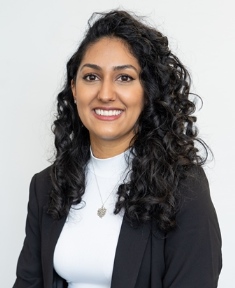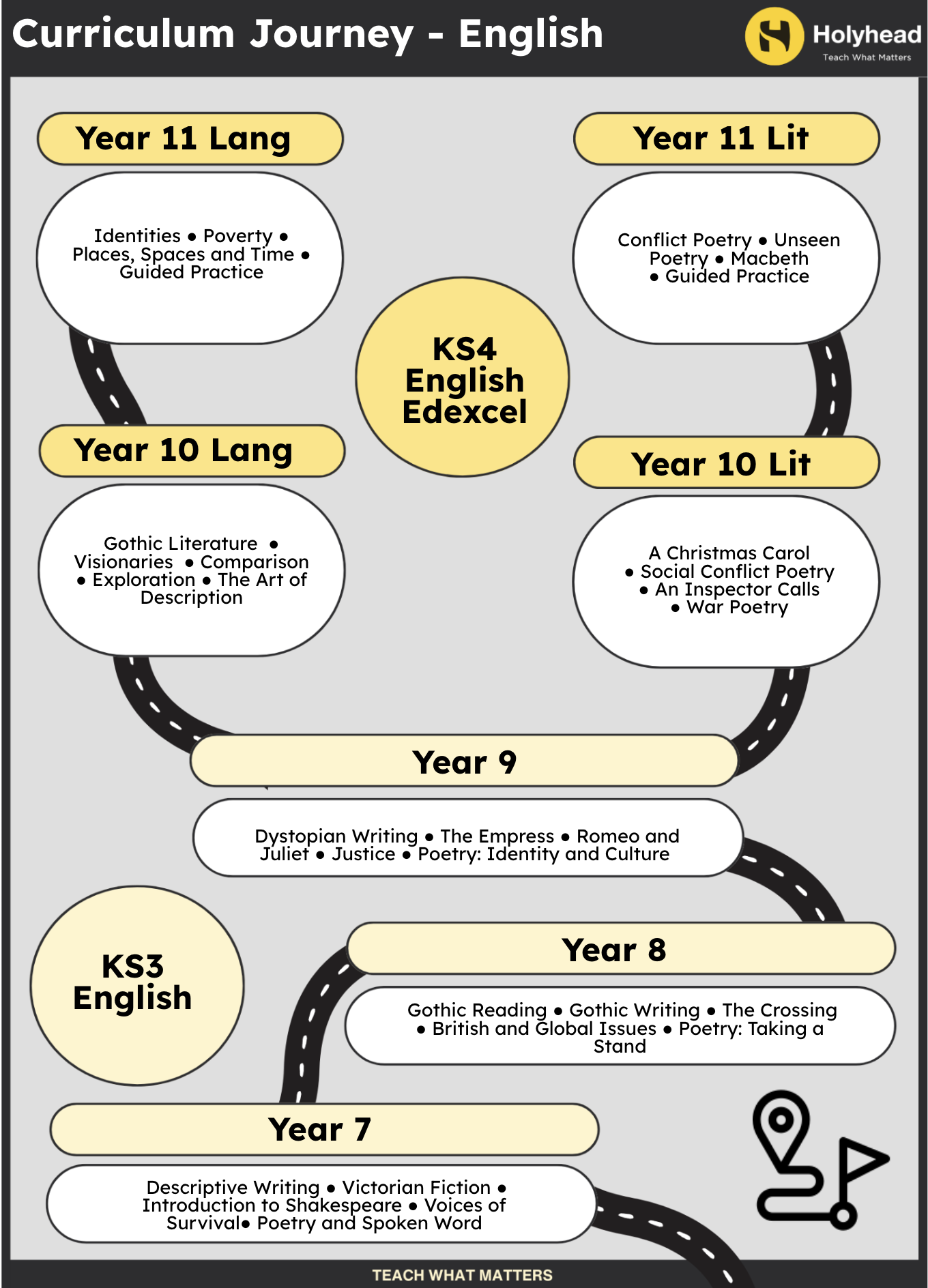English

Mr P Rafter
Director of Learning

Mrs N Malhi- Soggi
Assistant Director of Learning

Mr G Shaw
Assistant Director of Learning
Faculty Intent
The English curriculum is about personal growth, cultural enrichment and opportunities to participate in gritty debate. We believe our learners are not bound by any limitations on how they develop their sense of civic duty and English endeavours to serve this development. English enables learners to engage with the world around them through exploration, analysis and criticism.
The English Faculty at Holyhead uses this perspective to develop student's own view of the world through a range of multimodal texts and the Literary canon. We aim to present out students with a diverse range of authorial voices that represent the demographic of Handsworth, while keeping in line with the National Curriculum. We aspire to enable individual voice in a multifaceted world where morality and ethics are debated and scrutinised, thus developing the ethical mind and the moral character of every learner at Holyhead School. Holyhead English serves the local community in this way to ensure that the future of the local community is bright, ambitious and progressive.
Subject Intent
The English curriculum at Holyhead is designed to support students to:
- read with comprehension, fluently and with developed inference
- develop the habit of reading widely and often, for both pleasure and information
- acquire a wide vocabulary, an understanding of grammar and knowledge of linguistic conventions for reading, writing and spoken language
- appreciate our rich and varied literary heritiage
- write clearly, accurately and coherently, adapting their language and style in and for a range of contexts, purposes and audiences
- use discussion in order to learn; they should be able to elaborate and explain clearly their understanding and ideas
- become competent and articulate in the arts of speaking and listening, making formal presentations, demonstrating to others and participating in debate.
- be cognizant of wider issues and hold healthy curiosity and awareness of the positive role they can play in wider societal issues.
- hold progressive values and demonstrate empathy towards people of all protected characteristics
What are the key skills of a linguist and literary critic?
English Language:
Reading:
- Summarise and critically evaluate with detailed and perceptive understanding
- Understand and respond with insight to explicit and implicit meanings and viewpoints
- Analyst and critically evaluate, with insight, detailed aspects of language, grammar and structure
- Substantiate their understanding and opinions with illuminating references to texts and contexts
- Make convincing and apt links and comparisons within and between texts.
Writing:
- Communicate with impact and influence
- Produce ambitious, accomplished and effectively-structured texts
- Use a wide range of well-selected sentence types and structures and precise vocabulary to enhance impact
- Spell, punctuate and use grammar accurately so that writing is virtually error-free.
Speaking and Listening:
- Communicate clearly and effectively, using a repertoire of strategies to engage their audience
- Be able to adapt the formality of their speech to the audience and situation
- Listen to and respond to their audience, developing on their ideas/opinions
English Literature
- Sustain a convincing, informed personal response to explicit and implicit meanings of texts
- Sustain a perceptive critical analysis of the ways in which writers use language, form and structure
- Use judicious and well-integrated textual references to develop personal responses
- Show perceptive understanding of how contexts shape texts and responses to texts
- Make illuminating comparisons between texts.
- Use multimodal texts to learn about what matters to them and shape their worldview through discussion and reason
- Judicious use of literary terminology and wider contextual analysis


